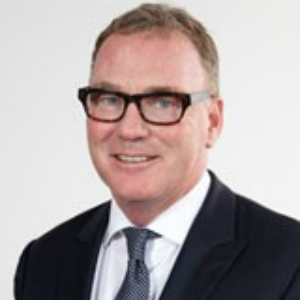Powered by MOMENTUM MEDIA
The Australian Bar Association has rejected the views of a Sydney barrister published by News Corp, suggesting men at the bar will suffer under a national equitable briefing policy.

The Australian Bar Association (ABA) has publicly distanced itself from the anti-equitable briefing stance of NSW barrister Jeffrey Phillips SC.
ABA president Will Alstergren QC (pictured) released a statement last Friday, describing the views that Mr Phillips had shared as being inconsistent with those of the organisation.
“The views expressed by Mr Jeffrey Phillips SC in The Australian newspaper on 24 March 2017, do not reflect the view of the Australian Bar Association,” Mr Alstergren said.
In an 871-word opinion piece, Mr Phillips set out why he felt a particular unease towards the Law Council of Australia’s equitable briefing policy. The silk described the initiative as being an Orwellian-sounding act of social engineering and echoed the words of an American academic to call for women to fight all their battles by themselves and win.
“The motto of the NSW Bar Association is: 'Servants of all yet of none.' The Bar aims to promote collegiality and mutual assistance,” Mr Phillips said.
“How can the bar adequately ‘serve all’ when a policy it adopts does not, on its face, serve all its members? Such a motto and aims are difficult to reconcile when a group within is given preferential treatment,” he said.
Citing 2016 comments made by Philadelphia-based Professor Camille Paglia, who was profiled as a part of a feminist critique on US presidential-hopeful Hillary Clinton, the barrister argued that quota-based affirmative action approaches undermine gender equality efforts. Mr Phillips’ opinion piece also suggests an equivalent unease towards targets.
The LCA’s equitable briefing policy does not have any quotas. Signatories to the LCA policy are encouraged to meet a non-mandatory target of briefing women in 30 per cent of all matters and pay women 30 per cent of the value of all brief fees by 2020. Both targets drop to 20 per cent in relation to senior barristers.
“The targets are relevant because on the raw figures of women at the bar, the policy will mean more work for women barristers and consequently less work for male barristers,” Mr Phillips wrote.
Mr Phillips also said that the LCA policy may see male barristers removed from briefing panels, and that the loss of work would potentially exacerbate the financial stress of some struggling members of the bar.
He then added he was aware of three colleagues from the Sydney bar who had taken their lives in recent years, and that in one instance financial pressure had been “an overwhelming factor”.
“Many at the bar, male or female, thrive. Some struggle. In what appears to be in some areas a shrinking legal market for the bar, all of the latter group, of whatever gender or diverse background, need the bar’s help,” Mr Phillips said.
The ABA disagreed with the assertion that the aspirational targets set by the equitable briefing policy will see briefs taken from male barristers. To the contrary, Mr Alstergren said it that the organisation chose to support equitable briefing because it would enhance excellence, diversity and inclusion at the bar.
“There is no evidence that the policy 'takes work away' from male barristers,” Mr Alstergren said.
“To the contrary, we believe the policy will result in a larger pool of work for barristers, drawing in the expertise, skills and diversity of the Australian Bar.”
The ABA adopted the policy in 2016, not long after the LCA announced its equitable briefing policy last June.
In January last year, Mr Phillips wrote another opinion piece that was published in the same newspaper, explaining why he had opposed the policy’s adoption by the NSW Bar Council.
In that piece, he took aim at some members of the NSW Bar Association with claims that some leaders among the ranks of the organisation were acting like pontificating “philosopher kings and queens” and underscored behaviour that he viewed as being akin to “a form of social engineering”.
“I asked rhetorically why stop with providing a bias to women, some of whom attended the best schools and universities or by their own eminence do not need additional assistance to make more money. Why not assist other more seemingly disadvantaged groups,” Mr Phillips wrote.
The barrister served as a member of the NSW Bar Council in 2015.
According to his January 2016 article, Mr Phillips took issue with a survey that was put forward in support of the equitable briefing policy to the NSW Bar Council. He said that the report suggested a substantial disparity between the gross earnings of male and female barristers, however argued that the report survey was not comprehensive and included unverified answers to the questions it posed.
“The value of such a survey underpinning such a gross intrusion into the allocation of work to independent individual professionals is doubtful. There probably is a difference in gross fees between the genders. However, there can be many reasons for that gap which go beyond sexism within the legal market,” Mr Phillips said.
